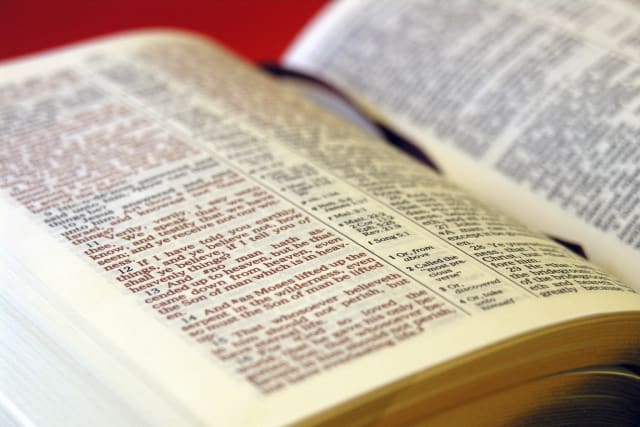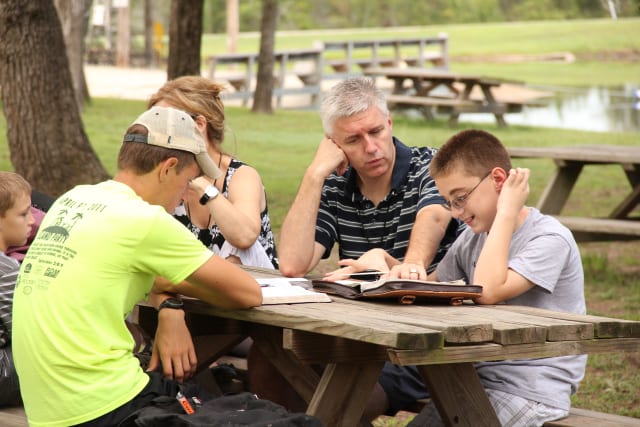

For a majority of Christian families, one of the first songs their children learn is Jesus Loves Me, and the wonderful news of this love is based on the words that follow: “for the Bible tells me so.” The truth is, our beliefs are built on what we find in Scripture, which is why critics so often attack the reliability of the Bible. The first recorded words of Satan show him questioning the truthfulness of God’s Word (“Did God really say…?”).
So do we have the very words of God, as 1 Thessalonians 2:13 claims, or is the Bible simply a helpful product of man? A lot is at stake here because if it’s of human origin, you might listen to it or you might not, but there’s no obligation to obey it. However, if the Bible really is the Word of God, then everything changes. If God has spoken, nothing else is more important!
Whenever I hear objections to the Bible or doubts enter my mind, I remember an acronym that reminds me of why I believe the Bible is God’s Word: T.R.U.S.T. (as in, you can TRUST the Bible). Rather than plead blind faith, God calls us to always have a ready answer when asked what our hope is founded on (see 1 Pet 3:15). Here are my reminders.
With any piece of ancient literature, these are used to determine its historical reliability.
The incredible detail of Old Testament transmission (i.e., how it was copied) protected its reliability. Jewish scribes (those who copied Scriptures by hand) began their training at age 14 and faced a demanding role. So serious was the attitude towards God’s Word that several precautions were taken to achieve an exact replica of the master copy. The 1947 discovery of the Dead Sea Scrolls (800 volumes of scrolls and fragments dating back 2,000 years) allowed us to compare these manuscripts with already-existing copies and confirmed the Bible’s accuracy after years of transcription. In all, no archaeological discovery has ever contradicted Scripture. Rather, each finding reinforces its accuracy.

The Bible is truly “different from all others; having no like or equal.; incomparable.” It is unique in its…
Demonstrating that the Bible is reliable and unique doesn’t conclusively show that it is supernatural. Fulfilled prophecy, however, is God’s signature, proving that the Bible is from an all-knowing God (see Isaiah 41:21-23; 46:9,10; 48:3-5). In other words, the Bible’s ability to predict future events and people, shows that its origin is from Someone who is both omniscient and outside of time, since this couldn’t be the result of human knowledge or guesswork. For example, there are over 60 major prophecies concerning the Messiah throughout the Old Testament that were fulfilled in Jesus Christ. The odds of only eight of the them being fulfilled in one man has been estimated at 1 in 10 to the 17th power (that is, 100,000,000,000,000,000).
Finally, we would expect a handbook from our Maker to deal with life’s most important issues, to appeal to every person, and to have the power to change us. As Psalm 119:160 reminds us: “All your words are true; all your righteous laws are eternal.”
The next time you face an objection to the reliability of the Bible, remember that you can be assured that all Scripture is God-breathed (2 Tim 3:16), that it is living and active (Heb 4:12), and that it stands forever (Isa 40:8).
Heaven and earth will pass away, but my words will not pass away.
Matthew 13:31
Posted Jan 21, 2014
Categories: Spiritual (Browse all)
|
Tags: bible, faith, scripture, truth
Click here to sign up for our Inside the Cove newsletter!